The future of HR technology: 5 predictions to plan for
 Like so many things, the world of HR is changing dramatically in the face of rapidly-developing technology. Deloitte and Bloomberg estimate the HR technology market is now worth $15 billion[1], with further growth anticipated as the industry continues to expand and innovate.
Like so many things, the world of HR is changing dramatically in the face of rapidly-developing technology. Deloitte and Bloomberg estimate the HR technology market is now worth $15 billion[1], with further growth anticipated as the industry continues to expand and innovate.
Software Advice’s recent Human Resources Software BuyerView 2015 report found that, “The biggest pain points are improving efficiency and organization (44 percent) and automating HR processes (22 percent).” Although the desired functionality varies by audience, personnel tracking ranked at the top, followed by these additional automation needs:
- Recruiting
- Performance reviews
- Time and attendance
- Payroll
- Learning management
- Onboarding[2]
So, what is the future of HR technology likely to look like?
- Streamlined automation will empower HR as a strategic business function
Traditionally, HR has been bogged down by administration, but with the introduction of online HR software solutions, much of this administration can now be automated. Vikki Southey, Principal of Lucamie, says, “With the rise of technology, HR is being empowered to act as a core player in the strategic business function. This essentially plays out in two parts. The first is enabling a business via HR processes, systems, and compliance. The second is less tangible but just as important, and that’s the creation of a positive, proactive workplace culture that enables a business to attract, retain, and motivate the best staff. I believe that you can only achieve the latter if you have the technology in place to automate the former, and we’re seeing this play out as more and more SMEs begin to embrace the power of an automated, online HR solution.”
- An increasingly-mobile workforce will pose unique advantages and challenges
The rise of technology has seen the rise of the mobile workforce, with Gartner predicting that 50% of users will rely on their tablet or smartphone for all online activities by 2018[3]. Vikki Southey says, “Mobility clearly offers a raft of advantages for employers and employees, but it also poses some unique challenges with businesses now having to control a number of remote working environments. There are a whole range of factors to consider, including much more stringent policies around health and safety at home, non-traditional working hours, and setting clear expectations around what is and isn’t acceptable in terms of mobile working practices. Having an online system allows employees to engage with policies and procedures wherever they’re working from.”
- Reporting requirements will become even more stringent
With HR increasingly moving from a traditional paper-based function to an online, in-the-cloud environment, government expectations around reporting and compliance will continue to become more stringent. “Sorry, I can’t find that document”, will no longer be an acceptable excuse, with businesses required to keep complete and up-to-date records of all contracts and employee transactions. For businesses that embrace an automated, online solution, this should be relatively painless. For businesses that drag their heels and persist with a paper-based system, this will become an administrative nightmare.
- Staff will demand self-service functionality
The next generation of employees have grown up immersed in technology, and will demand the ability to manage their own information at work. They will expect to be able to update their own details, manage their own employment documents, and lodge and keep track of their requests (e.g. annual leave) online.
- Big data and analytics will provide more insight (and more responsibility)
With HR primarily managed and tracked online, HR will finally have access to the big data previously only accessible to other business functions like Finance and Sales. With this increased insight will also come increased responsibility. HR will be expected to analyse and report on its contribution to big picture business goals, and improve its performance accordingly. In this way, it will be held accountable to business growth like Sales and Marketing; finally considered a key part of the core business development function in its own right.
It’s certainly an exciting time in the world of HR technology. Smart businesses will ask themselves not just, ‘How can we keep up?’ but – more importantly – ‘How can we leverage these technological advancements for maximum competitive advantage?’
Stay tuned for more exciting developments.
DiffuzeHR is transforming the way SMEs approach HR by giving them access to an easy-to-use, cloud-based system (and the smarts) to systemize and simplify, ramp professionalism, and gain proactive control. DiffuzeHR helps SMEs by allowing them to minimise risks, reduce legal fees, decrease time spent on admin, attract and retain staff, and leverage best-practice, industry-specific HR and legal expertise in a way that is simple, easy, and efficient.
To learn how you can leverage the latest in HR technology with DiffuzeHR, please book a demo at http://diffuze.com.au/.
[1] http://www.bloomberg.com/news/articles/2012-10-11/workday-raises-637-million-in-ipo-pricing-shares-above-range
[2] http://www.business2community.com/human-resources/hr-desperately-needs-a-technology-makeover-01340986#SVERPUZdBmFZHWJ2.99
[3] http://www.gartner.com/newsroom/id/2939217
Category: HR Future, HR Legal, HR Software, HR Technology
